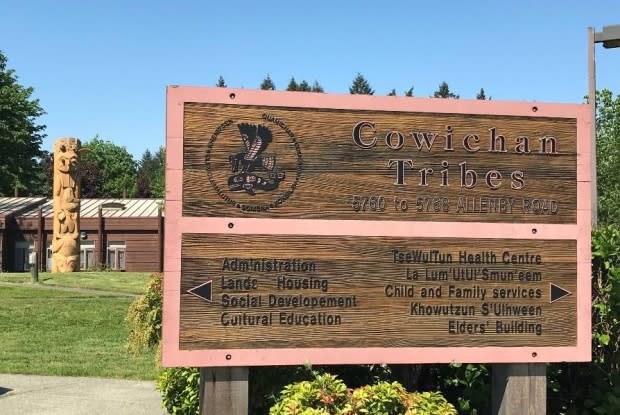Cowichan Tribes could take land and resource control back from Ottawa
The largest single First Nation band in British Columbia is asking its members to decide if they want to take away control of their land and natural resources from Ottawa.
The Cowichan Tribes, located north of Victoria in the Cowichan Valley, have developed a local land code that would replace the land management provisions of the Indian Act. If it gets band approval in September, the code will carry the same weight as the Indian Act in court and put the Cowichan people in charge of their land-use decisions.
"We will no longer have to see Indian Affairs for permission for us to do anything on our own land," said Chief William "Chip" Seymour.
It will also mean developers will need to work directly with the Cowichan Tribes and abide by the First Nation's laws and policies to proceed with any project on reserve land.
Economic opportunities
Seymour says if the code is adopted, it will mean projects can be approved quicker and that will mean more economic opportunities for the Cowichan Tribes.
He says several new projects will be developed — including a proposed waste-to-energy plant that the band has already started working on with the federal government — but they could be completed sooner if the community had land-use control.

The adoption of a land code is not a novel idea on Vancouver Island. Twelve First Nations on the island have already been through this process.
The Stz'uminus First Nation, located north of the Cowichan Valley near Ladysmith, voted for their own land code in 2013.
The Stz'uminus used the new land code to help build Oyster Bay — a 65-acre commercial, recreational and tourism development that includes housing, hotels and retail on their land.
Robert Louie, chair of the First Nations Land Advisory Board, says adopting the land code has certainly bolstered development opportunities for the Stz'uminus.
Chief Seymour hopes it will bolster new opportunities for the more than 4,900 Cowichan members as well, but the code also comes with new responsibilities.
The First Nation will be responsible for any environmental contamination that happens on their land. The Cowichan Tribes will also not be able to return to the Indian Act land management system in the future if they discover the proposed land code does not work for them.
Band members will vote on the land code in mid-September.

